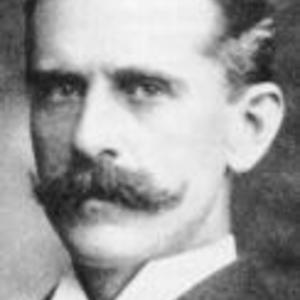
Credit: 7-themes.com
The poem “Gone From My Sight” by Henry Van Dyke, a mid-19th century American poet, is an evocative and deceptively simple narrative about watching a ship sail out of a harbor into the vast, open sea. The poem opens:
I am standing upon the seashore. A ship, at my side,
spreads her white sails to the moving breeze and starts
for the blue ocean. She is an object of beauty and strength.
The object of the poem, the ship, is introduced here as strong and beautiful. Van Dyke refers to it as female; if the ship were human, she would be the very picture of health and vitality.
I stand and watch her until, at length, she hangs like a speck
of white cloud just where the sea and sky come to mingle with each other.
Not being diminished in any way except by the narrator’s own perspective, she slowly disappears.
Then, someone at my side says, “There, she is gone.
Gone where?
Gone from my sight. That is all. She is just as large in mast,
hull and spar as she was when she left my side.
And, she is just as able to bear her load of living freight to her destined port.
Her diminished size is in me — not in her.
Thus the ship remains strong and able, carrying precious cargo safety to its destination.
And, just at the moment when someone says, “There, she is gone,”
there are other eyes watching her coming, and other voices
ready to take up the glad shout, “Here she comes!”
And that is dying…

Henry Jackson Van Dyke
(Credit: allpoetry.com)
Van Dyke was the son of a Presbyterian minister, so it is easy to assume that he had some sort of ancestral heaven in mind when he imagined the “other eyes… and other voices” waiting to greet the ship as she arrived on a distant, invisible shore. This interpretation requires the reader to accept the concept of heaven or an “otherworld” in order to gain comfort from the poem. Within this context, the poem loses its meaning for those who don’t believe in life or consciousness after bodily death.
However, there is another feasible reading of the poem that offers another meaning and a different relationship between death, loss and memory. The narrator’s acknowledgement that the ship is diminished only by perspective opens the possibility of seeing her with the same eyes as those who are watching from the opposite shore. Remembering her stature, strength and beauty, the narrator retains the memory of her as she was. This suggests that, as we bid farewell to the dying body of a loved one, we welcome them into the richness of our living memory — not diminished but transfigured into an undying, ancestral story.
Regardless of what you believe about the afterlife, reincarnation or the Invisible World, it remains true that the dead are carried by the living; they actively contribute to weaving the tapestry of our collective story for as long as we remember them — their stories, their sorrows, their joys, and their hopes and prayers for us and generations to come. It can be helpful to remember this as we try to ease the dying time of a loved one. By letting them know they will not be forgotten, we, perhaps, can give them the freedom to move on.
This poem also reminds us to live our lives in a such a way we provide nourishment and guidance to those who we will not live long enough to meet.

 “Gone From My Sight” by Henry Jackson Van Dyke
“Gone From My Sight” by Henry Jackson Van Dyke


 Our Monthly Tip: Make an “In Case of Death” File to Ease Loved One’s Grief
Our Monthly Tip: Make an “In Case of Death” File to Ease Loved One’s Grief
 Passing of Beloved Comedian Births a New Comedy Festival
Passing of Beloved Comedian Births a New Comedy Festival
















This reading brought me such comfort when I lost my older brother; likewise, at the time of our mother’s passing. I was with my mother as she took her last breath, and I said to her, “It’s okay, Mom, Sidney is waiting for you on the other side!” That painted such a lovely picture in my mind that I have never forgotten. And it helps me remember that, when it’s my turn to leave this earth, I can only hope my life will have had meaning for my friends and family still living, but that it will also be a joyous occasion when those who have gone before me shout, “Here she comes!”
Report this comment
My sister passed away two days ago. The hospice nurse gave me this poem. It really brought me peace and comfort. I will be reading it at her service.
Report this comment
Hi Mary Ann,
How wonderful that your hospice worker gave you that poem. Absolutely a lovely idea!
Report this comment
This is one of my most cherished images. But, surely, it matters whether we anchor it to the resurrection promises of Jesus? To disconnect it from the deep faith that gives Van Dyke this image is surely to diminish (if not completely eviscerate) the Hope expressed here. To see someone again (as Jesus promises) is very different from simply carrying someone’s precious memory with us. The poem draws its power from the conviction that what Jesus promises is actually true.
Report this comment
Yes, Jim Miller, I agree with you that for one to have the hope that the author expresses, it must be tethered to the truth of Jesus’ promises. My hope is solidly rooted in the fact that His promises are true and will never fail. I love the words of this poem, but without the foundation of Jesus as my Savior, they would be only sweet words. The truth of His promises ensure that I will join my loved one day, for eternity…a perspective that is much different than “hope” that the world holds.
Report this comment
This above all other poems and writings, is the single most comforting piece I read after my only child passed away. I read it from time to time when I need to feel better in those dark moments.
Report this comment
Hi Anne,
We love to hear such comments. Since it was comforting to you I hope your comment will be a light to make someone else aware of this poem so it can serve them as well. Thank you so much for sharing with us.
Suzette
Report this comment
I was a Hospice social worker for years, and that poem was shared with me. I have given it to people many, many times. My Mother recently passed away, and sharing it with my Dad was a real blessing. I think that people who are dying need to have it close. The vision is beautiful…knowing that we will be greeted…just beyond words.
Report this comment
Hi Lisa,
We really appreciate you sharing with us and our readers just how much this poem helped you and your dad. Isn’t it lovely! Poems like “Gone from my sight” are the reason we provide the content we do – we thank you!
Suzette, Founder
Report this comment
My best friend is in hospice as of this writing,, after fighting a valiant battle with stage IV cancer for almost 4 years. Her adult son is having a very difficult time trying to imagine a time where his mother won’t be a part of his life, like she’s always been. This is especially hurtful, since her Drs. say she is in her last days of life.
I sent him this poem last night (which I had recited at my mothers funeral services 8 years ago), & he was so grateful & comforted when he read it, & then promised to read it at his mom’s services. I’ve always imagined that heaven is on the receiving shore, where our family & friends who have gone before us, are waiting to welcome our precious loved ones home, where no illness or injury will ever befall them, for all eternity. The words of this beautiful poem, change a somber event into a hopeful & uplifting one, which is so helpful to those who are suffering through the loss of a loved one.
Report this comment
Yes, I agree. I poem like this can help to ease the pain of loss, if only a little bit. I’m glad you found the post useful!
Report this comment
I work as a hospice aid and am currently going to school to become an RN. We give the book “Gone From My Sight” to each family to read. This book and poem are so important in helping explain the dying process. I am doing a paper for my English class and I am using this Poem.
Report this comment
I came across this poem for the first time yesterday, at the funeral of an old former merchant seaman friend of my wife. He was known to the vicar, and she merged the Good Samaritan into “Ken never met a stranger” – and he didn’t – the world was full of friends. But, there was this poem on the order of service … to be read by one of his son’s. I read it before the funeral started, turned to my wife and whispered “I couldn’t read this, because it is too personal and wonderful”. Later, the vicar asked “Guy, will you manage it” and he did. He wisely omitted the last 4 words. They were unnecessary. We all heard them inside.
Report this comment